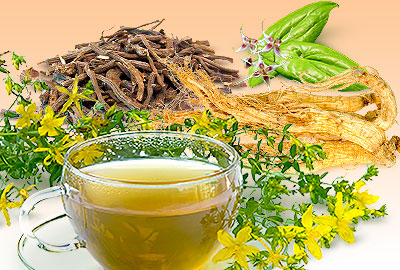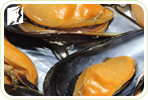Loss of libido can be stressful for a couple to deal with. Although all the love and passion is still there, becoming aroused may become more of a challenge. This is because during menopause, a women's body goes through significant hormonal changes. The lowered levels of estrogen and testosterone will make it more difficult for her to become aroused, lubricated, or to reach an orgasm. There are many important things to keep in mind during this time. Remember that this is simply a shift in your love life, not an end.
Affection
Be affectionate with your significant other. Even if full sexual intercourse is too painful at first, this does not mean you can't cuddle, kiss, and massage. Having physical interaction regularly can relieve tension throughout the day and build up loving feelings. It is best to start slow and to take it from there with patience and tenderness.
Distance and aloofness, on the other hand, may not help resolve the issue. Many couples tend to stop being as affectionate as time goes on. Even if that has happened, remember you can always rebuild an affectionate relationship. Be lovey!
Exercise
Start the day together with a brisk walk on the beach or at the park. Another option is to join a yoga studio or dance class together. This can be surprisingly romantic, and the libido benefits are profound.
Exercising increases blood flow to the genitals. At the same time, cardiovascular activity will boost endorphin levels and make you happier, while yoga will release gamma-aminobutyric acid (GABA), inducing tranquility.
This is helpful because stress can strongly get in the way of sexual enjoyment. Physical activity can provide a mild boost to testosterone levels, which will directly enhance libido. Also, read about understanding kegel exercises for increasing libido.
External Lubrication
Vaginal dryness can be very disruptive for a woman's sex life, since it can lead to discomfort, outright pain, and even tearing. Lubrication is essential for smooth penetration and increased sensitivity. Fortunately, there are many options to replace the lost lubrication.
Many women swear by specific brands of commercial lubrication. Although effectiveness rates in this matter are highly personal, it is important to privilege water-based (rather than oil based) brands, if possible, without added color or scent. There are also many natural options: coconut oil, almond oil, olive oil, and vitamin E oil are all easy to find and provide natural and long-lasting lubrication. At the same time, they fight bacterial infections.
Herbal Remedies
Since the dropped estrogen levels are largely responsible for decreased sexual response, then infusions or supplements made from phytoestrogenic plants are a beneficial solution. These compounds will work in the body like estrogen and improve blood flow and lubrication, making sex more pleasurable. Dong quai, black cohosh, and red clover are all full of these compounds.
Also, there are hormone-regulating supplements that can help relieve menopause symptoms, especially low libido. For example, Macafem nourishes the endocrine symptom to help it produce more hormones naturally. It is the easiest and safest way to balance hormones.
Loss of libido takes a bit more effort to deal with than you may be used to, but it is well worth it. These solutions offer positive shifts to your life that will improve the sexual functionality of your body and inspire excitement in general. Stay close with your loved one and regain your fire in the bedroom. Although the differences will be there to some extent, try to embrace it rather than avoid it.
Sources
- Better Health Channel. (2013). Menopause. Retrieved March 10, 2014, from http://www.betterhealth.vic.gov.au/bhcv2/bhcarticles.nsf/pages/Menopause?open
- National Institutes of Health. (2012). Dong quai. Retrieved March 10, 2014, from http://www.nlm.nih.gov/medlineplus/druginfo/natural/936.html
- National Institutes of Health. (2013). Physical activity. Retrieved March 10, 2014, from http://www.nlm.nih.gov/medlineplus/ency/article/001941.htm
- Office of Dietary Supplements. (2008). Black Cohosh. Retrieved March 10, 2014, from http://ods.od.nih.gov/factsheets/BlackCohosh-HealthProfessional/
- Trafton, Anne. (2008). The benefits of meditation. Retrieved March 10, 2014, from http://web.mit.edu/newsoffice/2011/meditation-0505.html
- University of Maryland Medical Center. (2013). Red clover. Retrieved March 10, 2014, from http://umm.edu/health/medical/altmed/herb/red-clover




